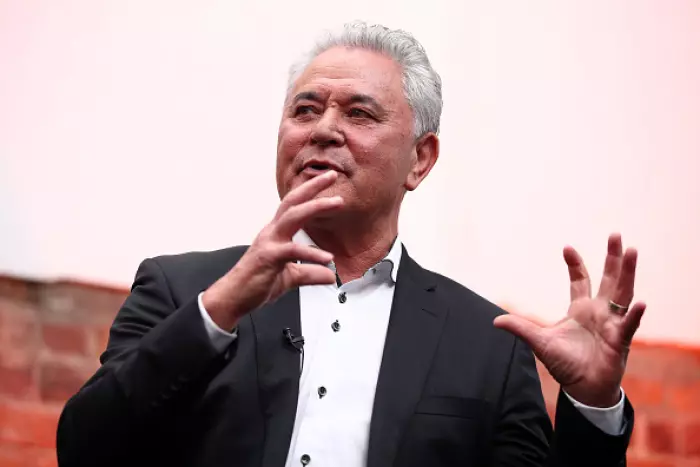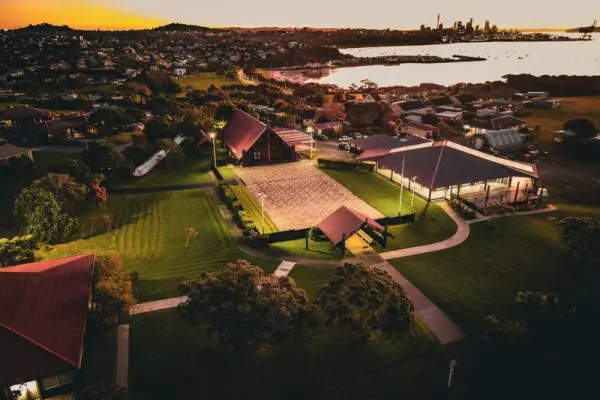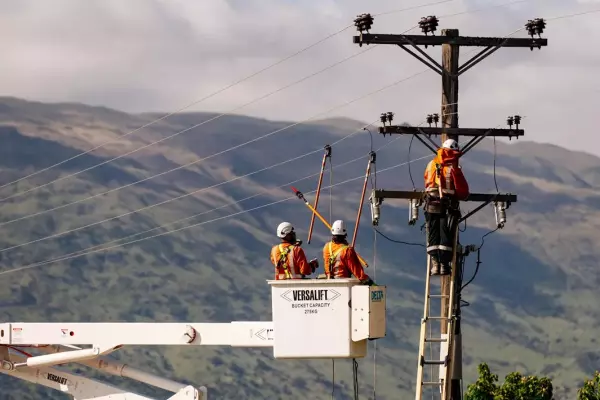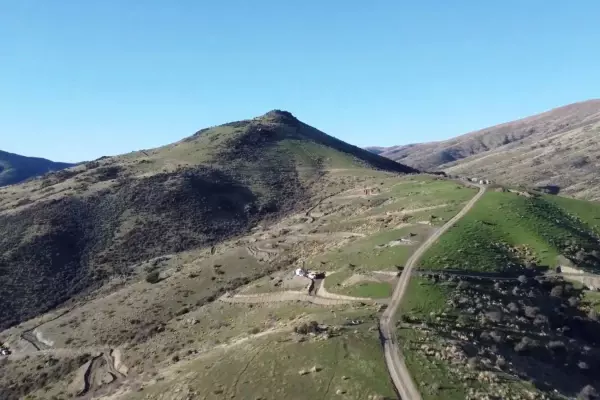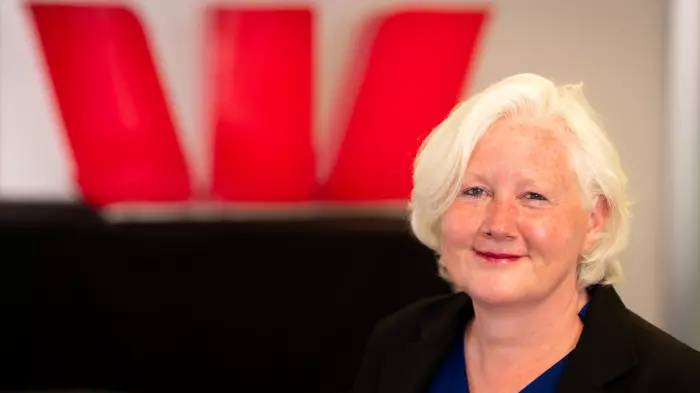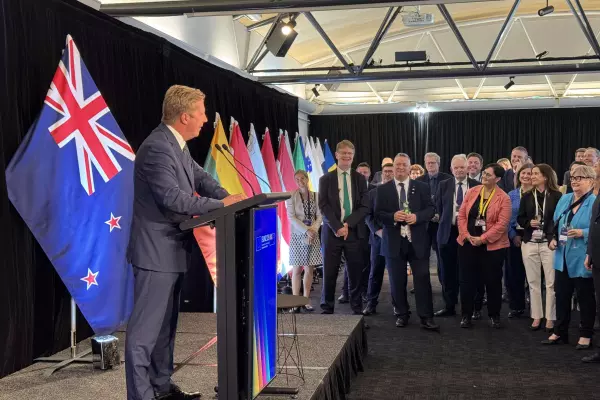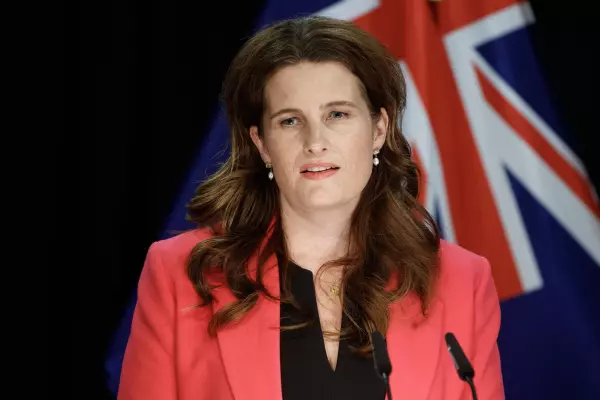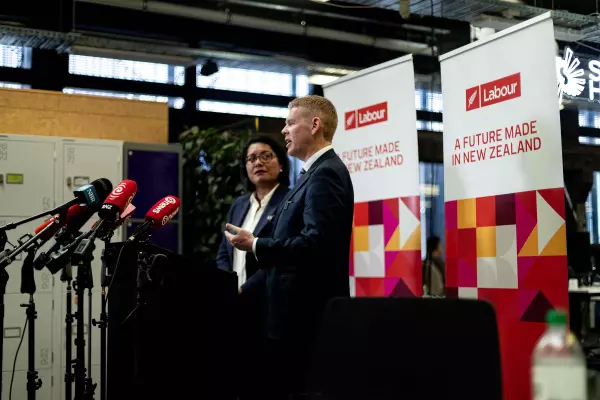Te Pāti Māori president John Tamihere wants to see the Māori party contesting all seats, not just the Māori electorates.
He said for the first time the nation would be “led by people from the waka” as they’re now tipped to be the ‘kingmaker’ in a recent Roy Morgan poll.
“We’re a movement and it’s our time," he said. “We get to determine who the prime minister is going to be and that’s a big thing."
The party has come a long way in three short years since voting for it was a “gamble”, according to Tamihere.
But they were the only party that ran a successful campaign against what he calls “Labour’s landslide”.
“We needed to make that gamble a certain thing.
“We took one of their safe seats, we made another two seats marginal – and we brought into question the other four.”
Tamihere said the poll results gave the party “comfort” because they're polls of the general seats.
“They’re not a poll of Māori sentiment in Māori seats.”
He said there were three seats for the taking and four on the swing with the possibility of using the party vote to get even more people in parliament.
“I’ll put my house on it that we'll win Waiariki and Te Tai Hauāuru.”
Waiariki is currently held by Rawiri Waititi and Debbie Ngarewa-Packer will be contesting Te Tai Hauāuru.
However, Tamihere’s “pretty certain” that Tāmaki Makaurau will go to Te Pāti Māori, but even if it didn’t, he said the party would – on present polling of 3.5% – have four or five seats all up.
He said running candidates in general seats that have high Māori concentrations on the general roll will help the party.
“Seats like Rotorua, seats like East Coast, seats like Mangere, Manurewa – have higher than usual numbers of Māori located on Pakeha seats.
“There’s no doubt that when we do the numbers, they stick out.”
Difficult history
According to him, the nation needed to understand the “difficult history” Māori have faced attempting to vote.
“From 1868 until this month, we weren’t able to change electorates, and furthermore up till 1975, you had to be half-caste or more to be on the Māori roll and that was a part of assimilation.
“We’ve never had the same entitlements and rights as non-Māori, which is something that is taken for granted."
Tamihere said it was a maturing of the Māori party as it came to understand “our space and our place”.
“We’ve got a different style of campaigning that other parties won’t even consider. We’re looking forward to it, it’s going to be a great ‘hit-out’.”
Te Pāti Māori co-leader, Debbie Ngarewa-Packer, said it “made sense to extend our reach” as a natural progression to stay aligned with those that are on the general roll.
“That’s including my Māmā who isn’t on the Māori roll and we have a whole lot of tangata Tiriti [people of the Treaty, Europeans] and our own people who want to support us."
She said waiting in the wings there were some “exciting, committed, well-known people” who were going to be important for the progression of the party – along with some “grassroots people”.
Ngarewa-Packer said the party’s focus will always be the Māori seats and she is hoping that more people will transfer over onto the Māori roll, “because we will have 14 seats, then”.
'What's good for Māori'
Annie Te One, a lecturer in Māori Studies at Victoria University, said the change to running in general seats is about recognising that not all Māori are on the Māori electoral roll.
“Firstly, some Māori are on the general roll, but also I think Te Pāti Māori have been clear that: ‘what's good for Māori is good for everyone’," Te One said.
“It will be interesting testing the grounds on how broadly and far-reaching their policies are outside of just Māori voters.
“And interesting to see who would vote for them in a general electorate and whether this kaupapa Māori party garner the same attention and support – it will be really fascinating to see."
Te One said it was interesting to see the “crossing-over” of different political ideals across the two electoral rolls because National is looking to put up candidates in Māori electorates.
“In the past, they haven’t been interested, in fact, they’ve been supportive of abolishing the Māori electorates."
She said it was a recognition that Māori have a politically diverse opinion.
The Māori party’s intention to run in the general seats could also be addressing the recent changes to the Māori electoral opt-in, she said.
“Thinking about how Māori voters can move more fluidly between rolls, parties may be trying to address this movement, as well," Te One said.
She said although Māori are statistically less likely to vote, there's a long history as to why this is the case.
“We can’t forget that the system of politics was born out of colonisation, with the intent to exclude Māori, so there are legitimate reasons as to why Māori are less likely to vote."
Voting is not the only way to consider how politically active Māori are, according to Te One.
“There are protests and hikoi – Māori are incredibly politically engaged.
“We have to be conscious that voter turnout is not the only way to assess political engagement.”
Statistics NZ's website states that between 2013 and 2018, enrolments on the Māori roll increased to 268,407 (up 12,195 or 4.8%). In that same period, the number of people on the general roll who identified as being Māori increased to 240,273 (up 36,633 or 18%).


